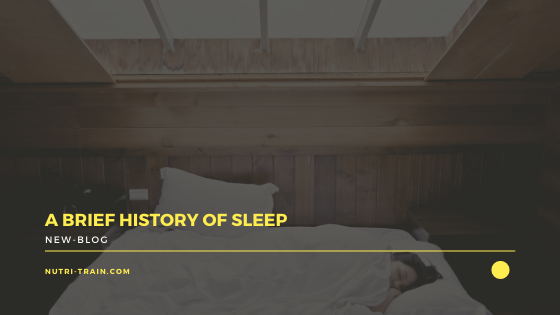|
Humans haven’t always been monophasic sleepers - we used to divide our sleep into two-phases over a 24-hour period (biphasic sleeping). History describes periods of wakefulness during the late night or twilight, where people would wake for a few hours to study the bible, socialise or make love, before returning to sleep for the second phase. Many believe that this changed with the invention of artificial light, which allows us to do more during the evening, and eventually leading to the sleeping patterns we’re accustomed to today. One study suggests that given the right circumstances (pure darkness and having zero sleep debt) we’d naturally gravitate back to this biphasic sleeping pattern.[1] The study discusses two symmetrical bouts of sleep, several hours in duration with a 1-3 h waking interval between them – which would just be near impossible in today’s current environment. ‘Sleep deprivation’ or ‘partial sleep deprivation’ are the terms used to describe most people’s current sleep situation based on current data in the UK which suggest 2.3 adults aren’t getting enough sleep. That is, living with insufficient sleep or sleeplessness and therefore in a constant sleep-debt. This has well-documented health implications that we simply cannot ignore which I’ve mentioned before. So, what does this mean? Well, in today’s society of electronics and light pollution, it would be near-impossible to replicate the conditions stated in the study above, and therefore a return to biphasic sleeping, but it does prove two important points. First, it confirms how exceptionally adaptable we are to our environment. New baby? Not to worry – we can adapt our sleeping pattern so we’re able to top up our sleeping hours whilst the baby sleeps. Different time-zone? Our circadian rhythm (the natural, internal process that regulates the sleep-wake cycle) can change if we expose ourselves to daylight or pure darkness to help us adjust to the time change. This study should also pacify those of us stressing about not getting enough sleep in one chunk. It’s okay! Just acknowledge that you might need a well-timed nap and your life requires a more biphasic pattern. Second, it highlights why creating the right sleep habits and the environment is essential for optimal sleep and wakefulness. We often hear about the morning routines of some of the world’s most successful, but what about their bed-time routine? Developing a bed- and morning-routine, even if it’s super short and simple can help positively impact the quality and quantity of your sleep. Do you have a morning routine? I’d love to hear about it in the comments below! If you’d like more help to improve and creating a sustainable and healthy lifestyle, make sure to check out my online coaching services – I’m that confident in it I have a money back guarantee if you’re not happy. Speak soon, JC [1] https://www.ncbi.nlm.nih.gov/pubmed/10607034
0 Comments
Leave a Reply. |
AuthorsJC and The Nutri-Team Archives
November 2020
Categories
All
|

 RSS Feed
RSS Feed
